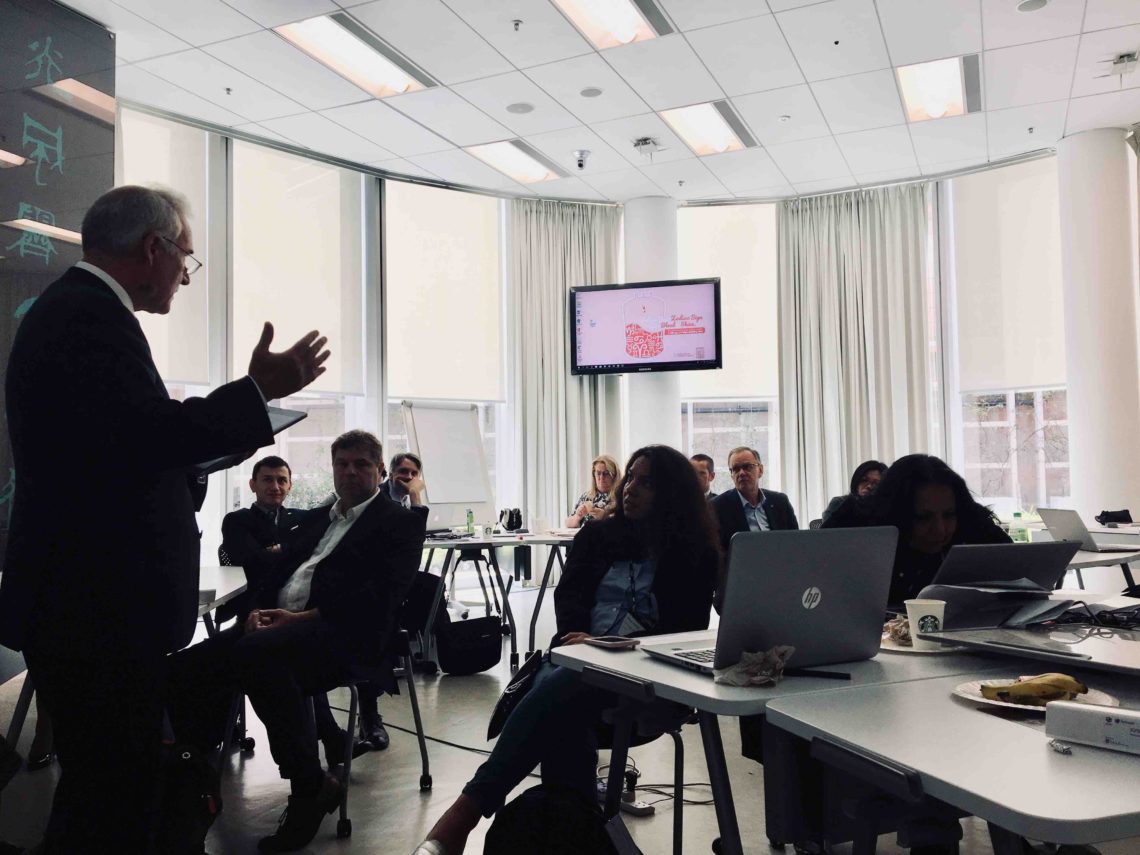Based on extremely popular EFMD-HUMANE winter school, held most recently in Barcelona, a separate event with a focus on Asia-Pacific and Europe recently took place in Hong Kong.
This was the second such event to be held in Hong Kong and this Asia-Pacific School had a particular focus on managing international strategic partnerships in higher education.

The context for the programme was that international strategic partnerships between institutions in the Asia-Pacific (APAC) region and Europe are becoming increasingly complex, operating across different nation states, cultures, public and private sectors. Many involve third party stakeholders and sponsors. However, it is not always smooth sailing and the benefits are not always as realised. The value for institutions, the development of education programme portfolios and the link with the internationalisation strategy of a country are not always obvious.
Key questions
In considering the critical success factors in managing sustainable APAC/European strategic partnerships the Asia-Pacific School focused on answers to key questions such as:
- How are strategic alliances and partnerships built and managed in HE?
- How do they evolve and mature?
- What are the different models and the pitfalls?
- How well are the potential reputational and financial risks assessed?
- How are risks and opportunities identified and managed on a collaborative and institutional level?
- What does the future hold for such partnerships in the digital era?
The programme was structured around key themes: global and other geopolitical changes in higher education; decision- making processes; institutional brand management; student engagement; risk management; and quality assurance.
There was a terrific cast of speakers too:
- The role of strategic partnerships in internationalisation – Joshua Mok Ka-Ho, Vice-President, Lingnan University
- The future of the Asia Pacific region and its impact on the global economy – Alicia Garcia Herrero, Chief Economist Asia Pacific, Natixis
- The strategic imperatives of Hong Kong University as a global HE partner – John Kao, Vice-President (Global), University of Hong Kong
- The governance of strategic partnerships – Christine Ennew, Provost of the University of Warwick and Stephan van Galen, Secretary-General, University of Groningen
- Partnerships across cultures – cultural awareness, cultural agility – Nigel Thrift, former Vice-Chancellor Warwick University and former Executive Director Schwarzman Scholars
- Working in partnerships in the Asia Pacific region: Views from outside HE – Egidio Zarrella, Partner, Clients and Innovation, KPMG China
- Fudan University’s strategy in international partnerships – Lu Xiongwen, Dean, School of Management, Fudan University
- What do international partnerships offer for students? – Andrew McRae, Dean of Postgraduate Research and the Exeter Doctoral College, University of Exeter and Stephan Riek, Deputy Dean, University of Queensland Graduate School
- Managing risk in strategic partnerships – Vincent Connor, Partner, Head of Hong Kong Office for Pinsent Masons, Hong Kong Pinsent Masons and William Soileau, Legal Director for Pinsent Masons

Many of the sessions highlighted both the benefits and pitfalls of a range of joint ventures and covered the large number of issues which institutions have to consider in establishing strategic partnerships and the importance of not underestimating the significant investment of time, effort, and money required for such activities to succeed.
Case studies
The core of the programme was case study work undertaken by participants working in small teams and focusing on the international partnership strategy of a particular university then developing recommendations for development. Teams were required to submit a written brief and present to another team acting in role as an executive board before being provided with feedback in a plenary session.
The school offered a great opportunity to participants to learn from peers from Europe, Asia and Australia. The significance of strategic partnerships for European institutions, and especially those from the UK, was amplified by the context, both the rise of universities in Asia and the ever-growing challenge of coping with Brexit.
As the UK anticipates a very different international profile post-Brexit, the forum reinforced the need for those of us involved in UK HE to sustain our engagement with colleagues from institutions overseas and ensure that whatever happens we are able to maintain the valuable links, collaborations and partnerships which have been established over many years.
This attitude, it seems to me, is more important than ever now and another really good reason for colleagues from the UK to support and get involved in programmes such as this and other offerings from HUMANE.
It was a privilege to be a part of the Asia-Pacific School again and, as in 2017, the feedback from participants was hugely positive, giving real confidence that future programmes will be as successful.













Thanks Paul, it was a fantastic event to be part of, and to recognize once again where the challenges of our universities lie and what we stand for. UK, Europe, Australia and Asia alike. All the best from Groningen, Bart